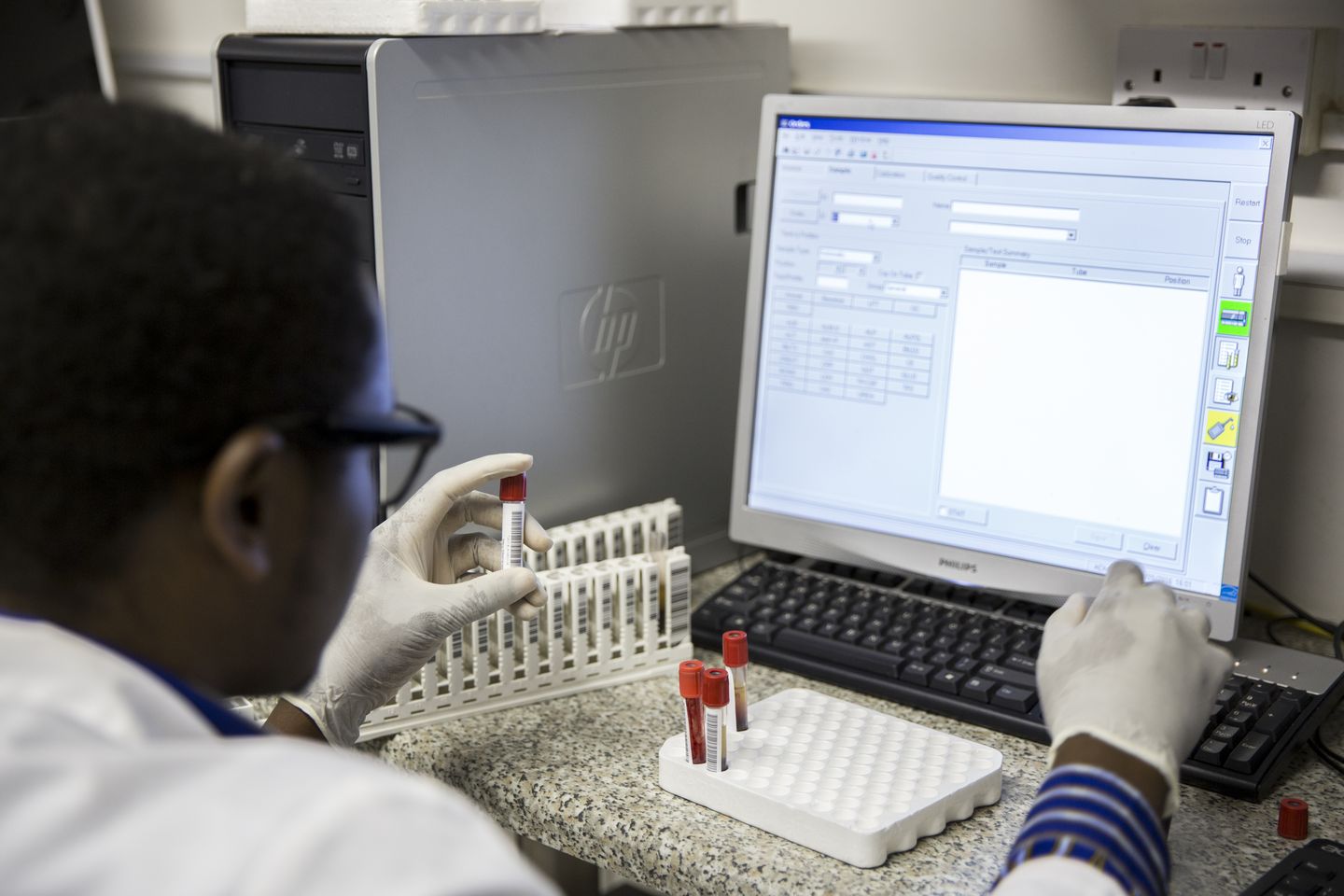For more than 15 years Newlands Clinic has been using an electronic database to gather comprehensive medical data on the treatment of HIV. These data yield insights into things like the efficacy of different HIV drugs, the viral load in the blood and the frequency of diseases that occur in connection with HIV. Our clinic now has what is a unique database for Zimbabwe and southern Africa.
Detecting sexually transmitted infections
A current study is looking into sexually transmitted infections such as genital herpes and syphilis among HIV-positive women. If left untreated, these can pose a threat, for example, to an unborn child, or increase the risk of HIV transmission. The study shows that around 60% of the patients investigated had a corresponding infection, even though 87% displayed no symptoms at all. This underscores the necessity of systematic screening. Other current research topics include the prevention of tuberculosis among children and young people, diagnosis of resistant HI viruses, the prevention of common types of cancer, and new therapeutic approaches for young people with insufficient HIV drug prescription and treatment adherence. Beyond this, the Newlands Clinic database is working with the Institute of Social and Preventive Medicine (ISPM) at the University of Bern to make an important contribution to the leDEA international study on the Aids epidemic in southern Africa.
Clinic extends own lab
If you want to do clinical research you need a well-equipped lab. In 2019 the clinic acquired a sequencer enabling it to perform its own analysis of the genetic material of HIV for resistances to antiretroviral drugs – something that used to be done in South Africa or California. The clinic intends to continue expanding its research capabilities: Lab manager Tinei Shamu is currently doing the PhD programme in epidemiology offered by the Institute of Social and Preventive Medicine (ISPM) at the University of Bern by distance learning, and all staff involved in research projects have been given training in scientific writing. Study findings have increasingly been made available to a broad specialist audience by way of publication in recognised journals and presentations at international conferences.


